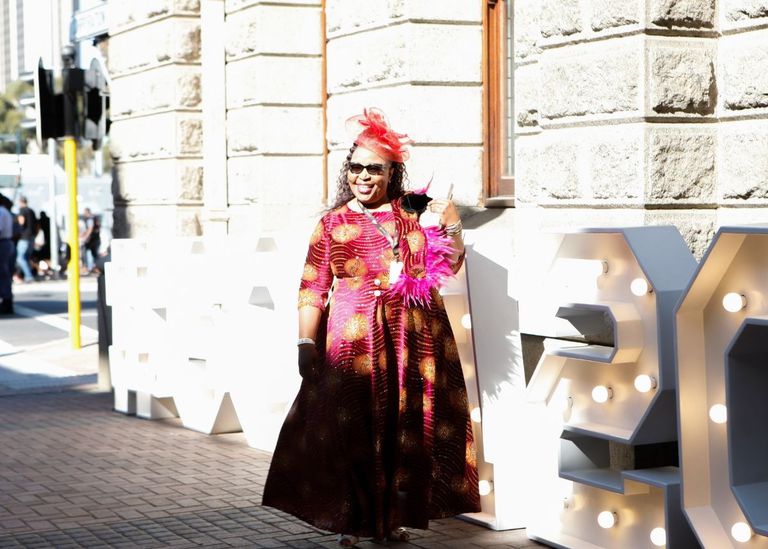
“We have given ourselves 100 days to finalise a comprehensive social compact to grow our economy, create jobs and combat hunger.”
“We have started discussions with social partners as part of the social compact process to review labour market regulations for smaller businesses to enable them to hire more people, while continuing to protect workers’ rights.”
These are excerpts from President Cyril Ramaphosa’s fourth State of the Nation Address (SONA) where he uses the term ‘social compact’, a catch-all phrase that has come to mean nothing during the President’s term in office. South Africans are skeptical of this phrase because there is very little that the government has done to forge relationships of trust between citizens and their political representatives. Honesty and accountability are essential ingredients to a good relationship, both of which have been largely absent during Ramaphosa’s term in office.
The SONA has become a talk-shop of hollow words where politicians act like celebrities while the country, literally in some cases, burns. President Ramaphosa’s SONA is an embarrassing affair that reveals the forked tongue which the President uses in attempt to blind South Africans to his government’s oxymoronic actions.

Image source available here.
Attempting to attract foreign skills but can’t stop brain drain
“The world over, the ability to attract skilled immigrants is the hallmark of a modern, thriving economy.
We are therefore streamlining and modernising the visa application process to make it easier to travel to South Africa for tourism, business and work.”
While the prospect of eVisa’s to make it easier for skilled immigrants to work in South Africa and bolster our economy should be welcomed, one has to wonder how this is proposed to work in the context of our inability to keep the skills we have in the country.
'Improving' access to healthcare but will actually destroy it
“We will therefore continue with the work underway to ensure universal health coverage for everyone in South Africa, regardless of their ability to pay.
While public hearings on the National Health Insurance Bill are continuing in Parliament, much progress is being made in preparing for the introduction of NHI.”
South Africans are well aware of the scale of state corruption, but even the most cynical were rocked by the revelations of looting of public funds during the Covid-19 pandemic. The Special Investigative Unit’s (SIU) report on PPE corruption investigated contracts to the value of R14.3 billion and with only R550 million said to be recoverable. The cherry on top is that the former Minister of Health, Zwellie Mkhize, himself has been implicated in the Covid-19 looting.
With this in mind and with the desperate current state of many of South Africa’s public hospitals, the government wants to nationalise healthcare through the National Health Insurance.
Admitting that private businesses create jobs but makes it difficult for them to do so
“We have been taking extraordinary measures to enable businesses to grow and create jobs alongside expanded public employment and social protection.
We all know that government does not create jobs. Business creates jobs.”
Every year for the past four years, President Ramaphosa has promised that millions of job opportunities are forthcoming. The outbreak of Covid-19 and more specifically the government’s lockdown reaction destroyed thousands of jobs. But more so, consistent load-shedding, onerous labour laws and race-based regulations have made doing business even more difficult. So much so that the current unemployment rate sits at a staggering 34.9%. Let’s not forget SA’s failing basic education system, where 40% of learners drop out of school between Grade 10 and Matric, leaving them ill equipped and with inadequate skills to enter South Africa’s services-oriented job market.
The acknowledgement that business and not the state creates jobs should be widely welcomed. However, policy reform needs to happen urgently and so far doesn’t seem to be happening - instead the government is doubling-down on bad policies, with the government hoping to pass the Employment Equity Amendment Bill of 2020 which would allow the Minister of Labour to set racial quotas for job appointments in private businesses.
Expanding the social welfare net instead of growing the economy
“Our intent is to leave no one behind.
That is why we are expanding public and social employment.”
Since 1997, the ANC has used a policy of Cadre Deployment to usher in party loyalists into positions in both the party and the state. This jobs-for-pals policy corrupts the public service by putting in people linked to the party into employment rather than opening opportunities to people who are qualified and competent. President Ramaphosa himself oversaw this scheme as the ANC’s chairman of the cadre deployment committee before becoming state president. This hasn’t prevented discontent even within the ANC with staff having had salary disputes, sometimes going months without being paid.
Alongside this, South Africa’s social welfare has ballooned massively with over 18.4 million people now on some form of social grant at an annual cost of R199 billion. Compare that to only 9.6 million people in formal employment (non-agricultural sectors). Essentially, the government would rather make citizens dependent on the state than create the conditions that afford individuals the dignity to uplift themselves and support their own families.
Embarking on infrastructure projects, but incapable of maintaining what already exists
“Through innovative funding and improved technical capabilities, we have prioritised infrastructure projects to support economic growth and better livelihoods, especially in energy, roads and water management.”
Decaying infrastructure is severely constraining South Africa’s economic prospects. Large factories, employing hundreds of people from rusk-makers to dairy-product producers, have suffered from decaying infrastructure, including on-going water and electricity shortages, and potholed-roads.
The country’s railway network isn’t much better, from wrong trains being ordered to many passenger stations being gutted and railway lines being stolen. SA’s ports reveal a similarly grim picture - after facing the devastation of the July Unrest in 2021, South Africa’s ports were hit by a cyber-security attack. Perhaps ‘innovative funding’ (whatever that means) will help solve these crises.
A social compact that actually works
“To be effective, this social compact needs to include every South African and every part of our society.”
The ’social compact’ partners do not represent the majority of South Africans - labour, business and ‘the community’. Only government represents South Africans. We don’t need a ‘social compact’ for President Ramaphosa to do what is necessary. He should just start implementing policies that allow the private individuals and businesses to address the needs of the South African market (and in the process create jobs), relieve the tax burden on South Africans as well as scrap BEE and cadre deployment.
This kind of ‘social compact’ relies on ordinary South Africans, endlessly demanding an honest, effective, accountable and limited government. When this gets tiresome and begins to take its toll (if it hasn’t already), take comfort in the fact that every five years there is a chance to use the most powerful tool a democracy can offer – having your say at the ballot box.
Cover image source available here.
